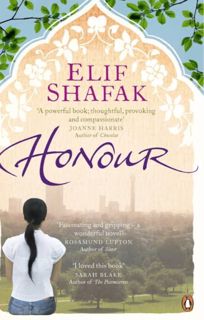
Honor, a concept deeply ingrained in human history, has been a central theme in literature across cultures and epochs. Novels, as a powerful medium of storytelling, often delve into the complexities of honor, exploring its manifestations, challenges, and consequences. In this essay, I will navigate through the multifaceted landscape of honor as portrayed in novels, drawing on personal opinions and reflections.
Honor, at its core, embodies a set of values and principles that guide an individual's actions and decisions. It intertwines with integrity, courage, and a commitment to ethical conduct. Novels serve as mirrors reflecting the diverse interpretations of honor, shedding light on its subjective nature.
Historical novels, set against the backdrop of different eras, offer a glimpse into the evolving perceptions of honor. In classics like "The Three Musketeers" by Alexandre Dumas, honor is portrayed as a code of conduct among comrades, a binding force that transcends personal interests. The characters in these novels often grapple with the tension between societal expectations and their personal moral compass, highlighting the fluidity of honor across time.
Personally, historical novels have shaped my understanding of honor as a dynamic concept, subject to the nuances of cultural and temporal contexts. The unwavering loyalty and camaraderie depicted in such narratives evoke a sense of nostalgia for a time when honor seemed simpler, yet simultaneously, they challenge me to question whether our contemporary understanding of honor has lost some of its depth and richness.
In contrast to historical settings, contemporary novels navigate the complexities of honor in a rapidly changing world. Themes of personal integrity and moral dilemmas come to the forefront, as characters grapple with the demands of modern society. Jodi Picoult's "My Sister's Keeper" is a poignant example where familial honor clashes with individual autonomy, forcing readers to confront the blurred lines between right and wrong.
Modern novels have prompted me to reconsider the traditional notions of honor. The intricate web of relationships and the collision of conflicting values depicted in these stories make me question whether our current society is more morally ambiguous than those of the past. Do we face a crisis of honor, or is it simply a matter of adapting to the evolving complexities of our world
Novels set in diverse cultural landscapes provide a rich tapestry of honor, demonstrating its malleability across societies. Khaled Hosseini's "The Kite Runner" takes readers to Afghanistan, where honor is entwined with the intricate fabric of family, loyalty, and redemption. As readers, we are invited to explore how cultural nuances shape our understanding of honor and influence our moral judgments.
These novels have broadened my perspective on honor, urging me to appreciate the diverse ways in which it is expressed across cultures. Instead of viewing honor through a narrow lens, I have come to understand it as a fluid and adaptable concept, capable of embracing a spectrum of values that enrich the human experience.
Novels often present honor as a double-edged sword, capable of both uplifting and destroying individuals. F. Scott Fitzgerald's "The Great Gatsby" unveils the paradoxical nature of honor, as characters pursue it with relentless passion, only to be disillusioned by its elusive and ephemeral nature. This exploration of the darker side of honor prompts readers to reflect on the potential consequences of an unchecked pursuit of societal approval.
The paradoxical nature of honor, as depicted in novels, has forced me to scrutinize my own motivations and actions. Is honor an intrinsic virtue, or does it become a façade to mask personal insecurities and societal pressures? Navigating this paradox challenges me to seek a balance between societal expectations and authentic self-expression.
Novels have been instrumental in unraveling the gendered dimensions of honor, exposing how societal expectations often differ based on one's gender. In works like Jane Austen's "Pride and Prejudice," the honor of women is intricately tied to issues of reputation, marriage, and social standing. The exploration of gendered honor invites readers to question and challenge traditional norms.
The examination of gender and honor in novels has prompted me to critically assess the roles assigned to men and women in upholding societal values. It compels me to advocate for a more equitable and inclusive definition of honor, one that does not perpetuate harmful stereotypes and limitations based on gender.
In conclusion, the portrayal of honor in novels serves as a rich tapestry that weaves together historical, cultural, and contemporary threads. Personal reflections on these narratives prompt us to question our own understanding of honor, encouraging a nuanced exploration of its intricacies. As I traverse the literary landscapes of honor through novels, I am reminded that its true essence lies not in rigid codes but in the continual process of self-discovery, adaptation, and the pursuit of a meaningful and principle life.
Follow Ammarah khan to stay updated on their latest posts!
0 comments
Be the first to comment!
This post is waiting for your feedback.
Share your thoughts and join the conversation.
